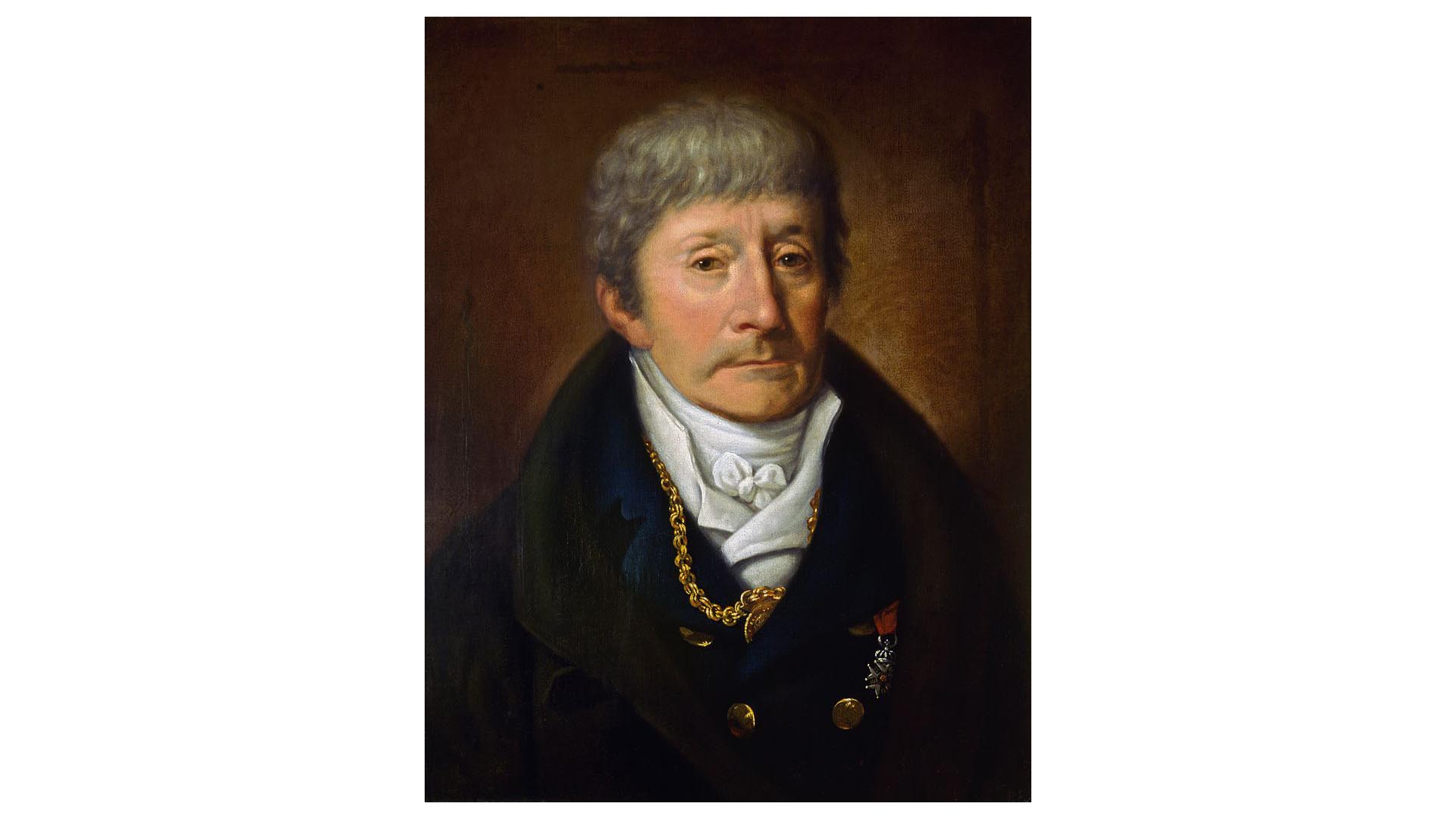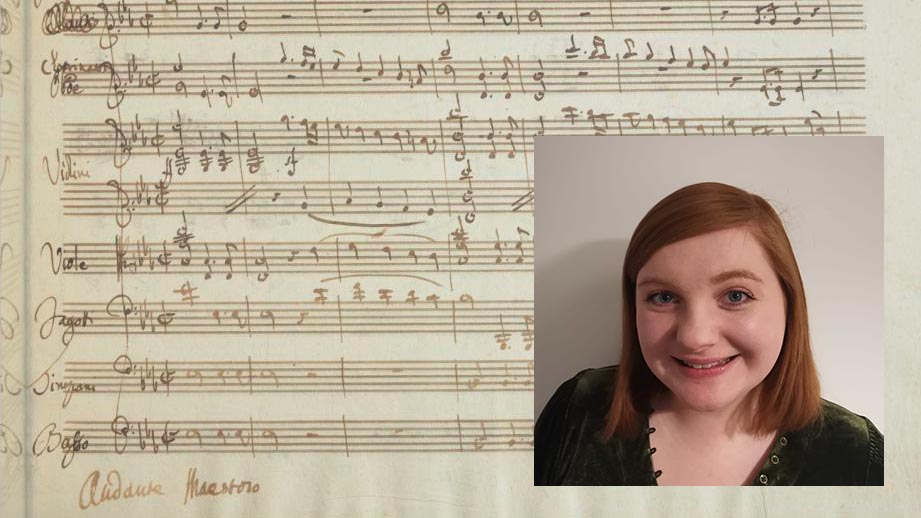Rediscovered Salieri ballet ‘was hiding in plain sight’

Years of research by the University of Huddersfield’s Ellen Stokes will result in a long-lost work by composer Antonio Salieri being performed for the first time in over 200 years in 2023.
Ellen, nearing the end of her PhD, has painstakingly pieced together the music for a ballet called Pafio e Mirra that the Italian composer had written to be performed during his opera Europa Riconosciuta which was premiered in 1778.
Although one of Europe’s best-known composers at the time of his death in 1825, Salieri has become famous – or infamous – due to rumours that he was somehow involved in the death of his contemporary Wolfgang Amadeus Mozart. The rumours were embellished and dramatized in Peter Schaffer’s play Amadeus that was turned into an Oscar-winning film in 1984.
Vienna visits yield results
Supported by funding from the University’s Richard Steinitz Scholarship in Musicology, Ellen has unravelled the mystery of Salieri’s lost work by meticulous research at the Austria National Library (ÖNB) and her own fascination with the often-overlooked composer’s work. As a result, Pafio e Mirra will be performed by the Lincoln Pro Musica orchestra in November.
“To my understanding it has not been performed in its full version in modern times,” says Ellen, also a talented flautist. “It is a really exciting prospect to get to hear it after so many years, when it will be expanded into a piece for an 18th Century-style chamber ensemble.”
Her visits to the library in Vienna found Ellen peeling away the layers of four manuscripts to piece together a work that, although not performed and thought lost for many years, was hiding in plain sight. Pages of music were jumbled up within the manuscripts, and although the ÖNB’s excellent online archive gave Ellen a flavour of what she needed, it was actually getting to grips with the papers that saw the jigsaw come together.

“I was amazed at the level of information that I found, but then the pandemic stalled my plans to visit the ÖNB. I had planned to go in June 2020, but I was lucky that these scores were online. The ÖNB is particularly good at making their resources available online, so I was able to access and transcribe them, but there is nothing quite like being able to see the real thing.
Reconstructing a long-lost ballet
“Once I could go to Austria, the music and the hypothesis that I had started to form really came to life when I could see the manuscripts. I must have looked a bit like a mad woman in the library archives, as I was lifting every page to look at the watermarks for hours. But that brought the research to life and from those visits I was able to put together the two main discoveries from my research.
“I believe that I have restructured one of his ballets, an inter-act ballet from one of his operas called Europa Riconosciuta, premiered in Milan in 1778. It was his first international opera, commissioned by Gluck, and was his international break, with the ballet coming in the middle of the opera. This ballet was believed lost in its full state, and scholars thought it only existed in a fragmentary form.
“In those times it was very rare for a composer to have written the ballet for his own opera, rather than get a different composer in for a ballet, which was seen to be of ‘lesser’ importance. It was a narrative within a narrative, so it is a very interesting case study.”
Seeing Salieri’s own handwriting and notes, scribbled in Italian around the edge of the manuscripts, helped Ellen complete the picture.
Salieri's Europa Riconosciuta
“The manuscripts became jumbled, one has a lot of marginalia around the edge and the instructions from that is where everything stemmed. The instructions showed that it was the start of the libretto, so I knew that movement was definitely from the ballet. Looking at another manuscript, there was a watermark that can only be found in Milan.
Persistence pays off
“Putting all the information together has helped me put together what I believe is the full ballet which was a very exciting finding within this research. To have found something thought to be lost was amazing.”
Dr Steven Jan, Ellen’s PhD Supervisor and a Reader in Music, pays tribute to Ellen’s persistence and her diligent research, saying, “It shows how important the skills of musicology are, in that researchers can be presented with evidence, and still have to do a lot of digging and lateral thinking to make it coherent.
“One has to speculate, come up with hypotheses and test them, making it a real detective job. Ellen has done really well to shed light on what has been a marginalised repertoire – Salieri is still a neglected composer. He was mainly known for his operas, and his instrumental music has not been so extensively studied.”
With Pafio e Mirra due to be performed in November, Ellen is keen to give Salieri the prominence she feels he deserves.
“It is amazing it is getting its first performance, but it would be great to get more of his works programmed. I will keep researching Salieri and try to bring this music to a wider audience and a wider understanding.”